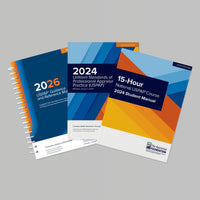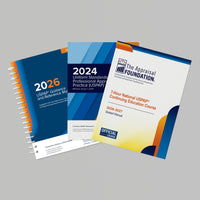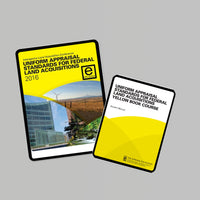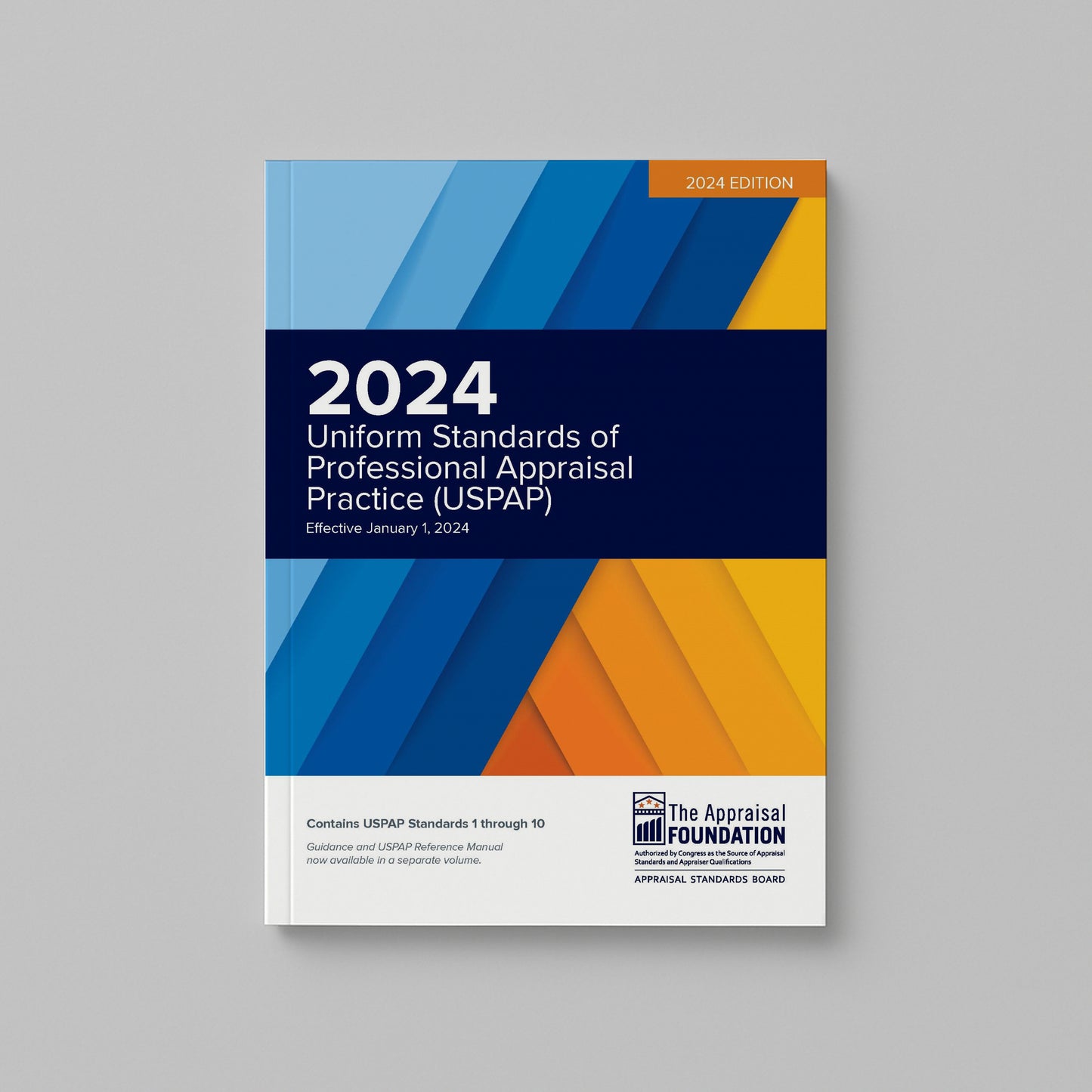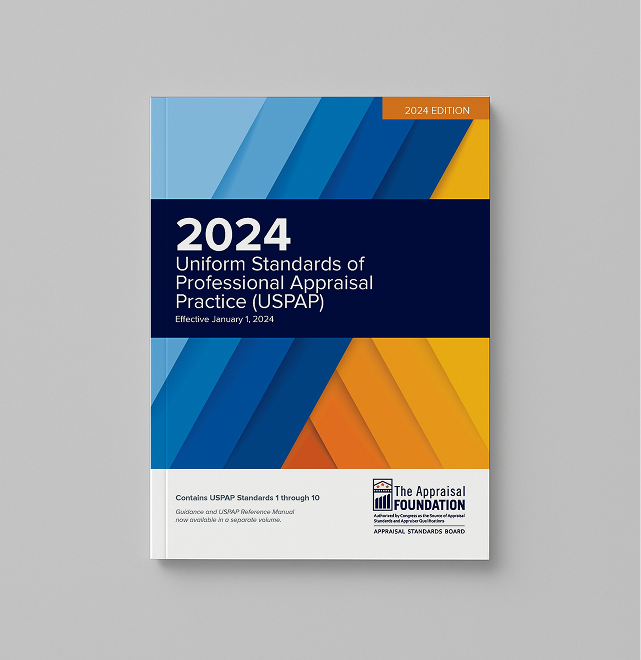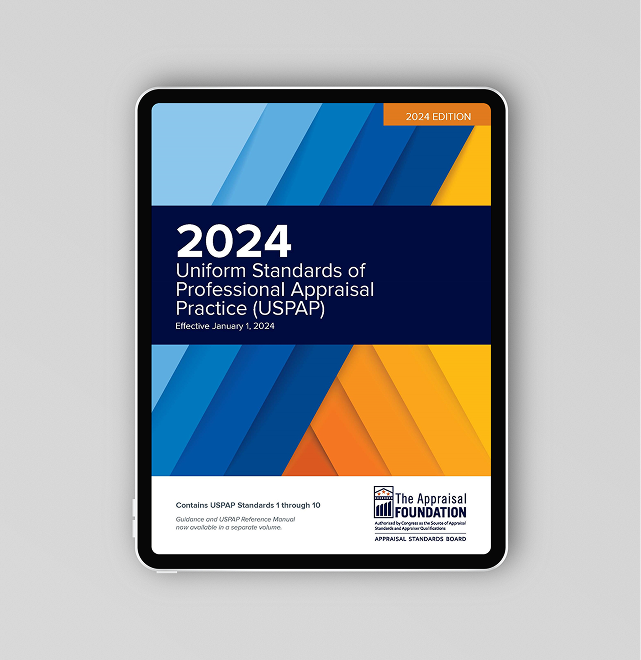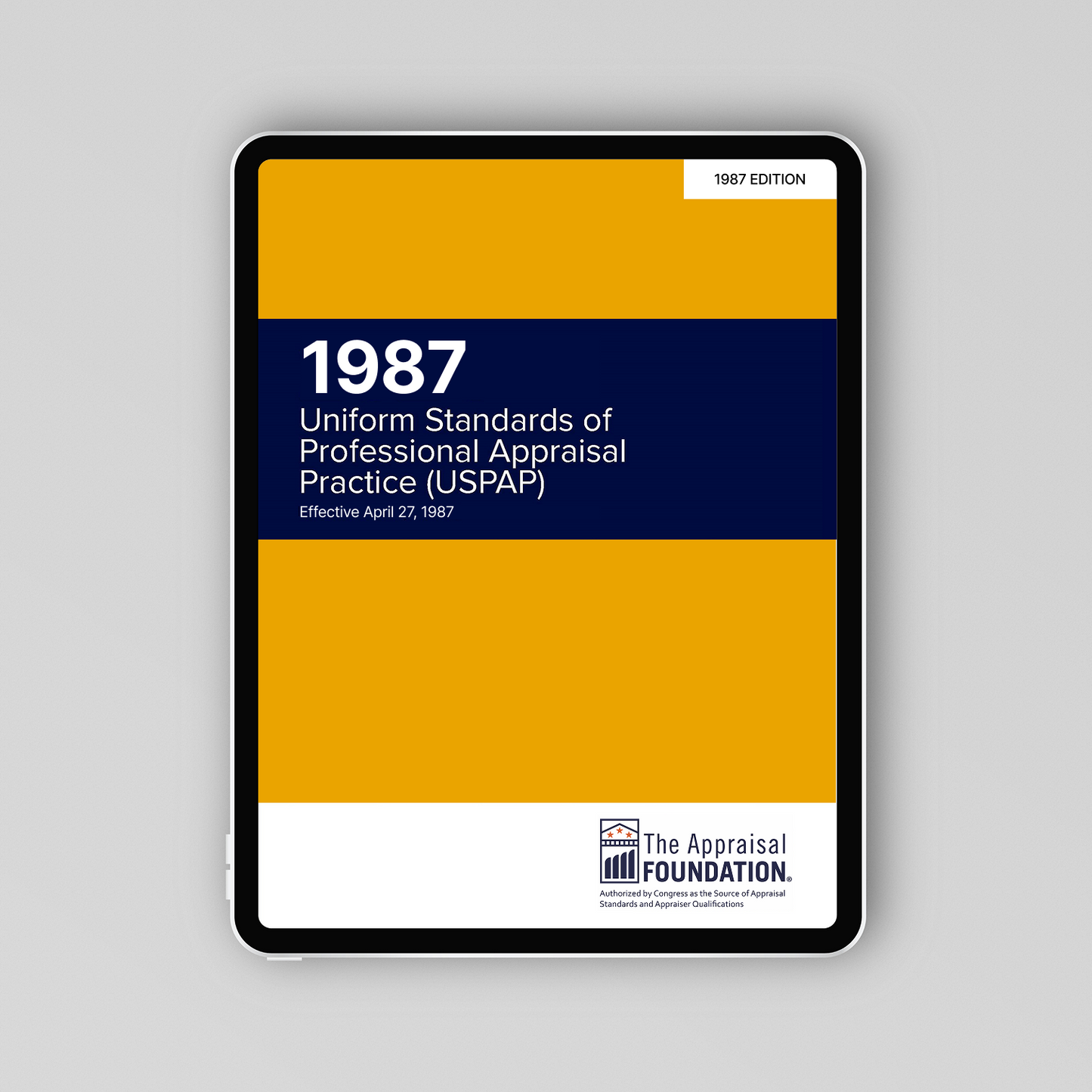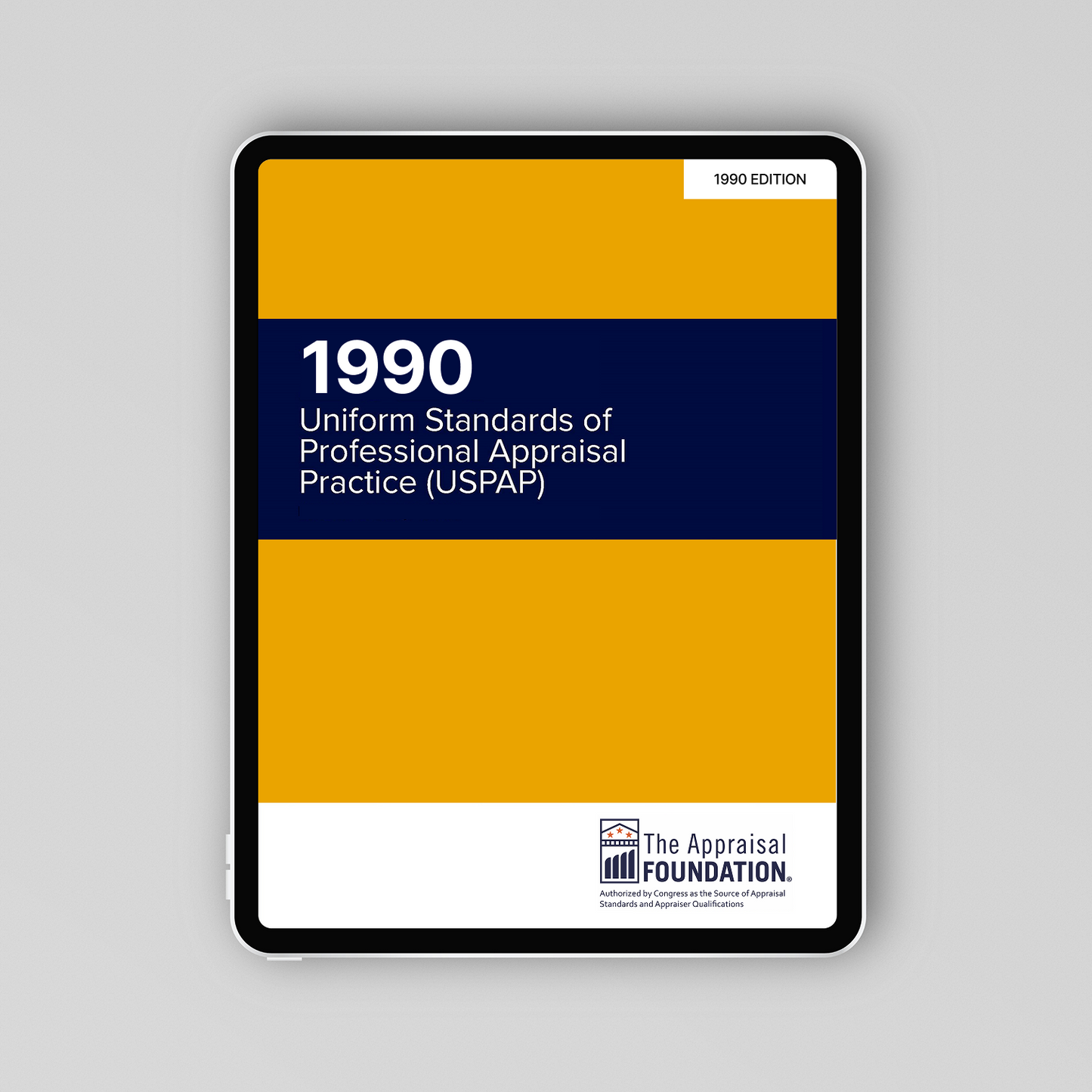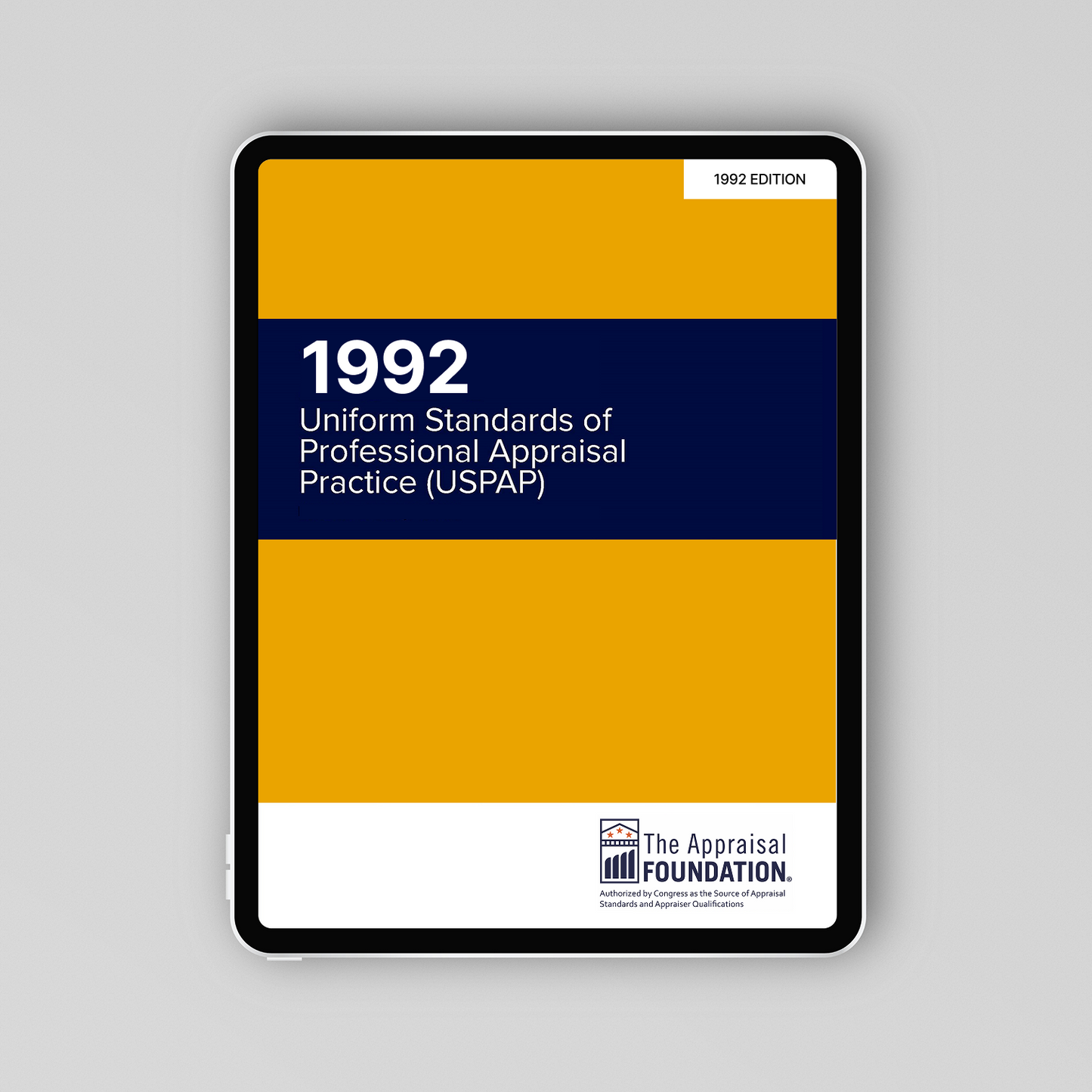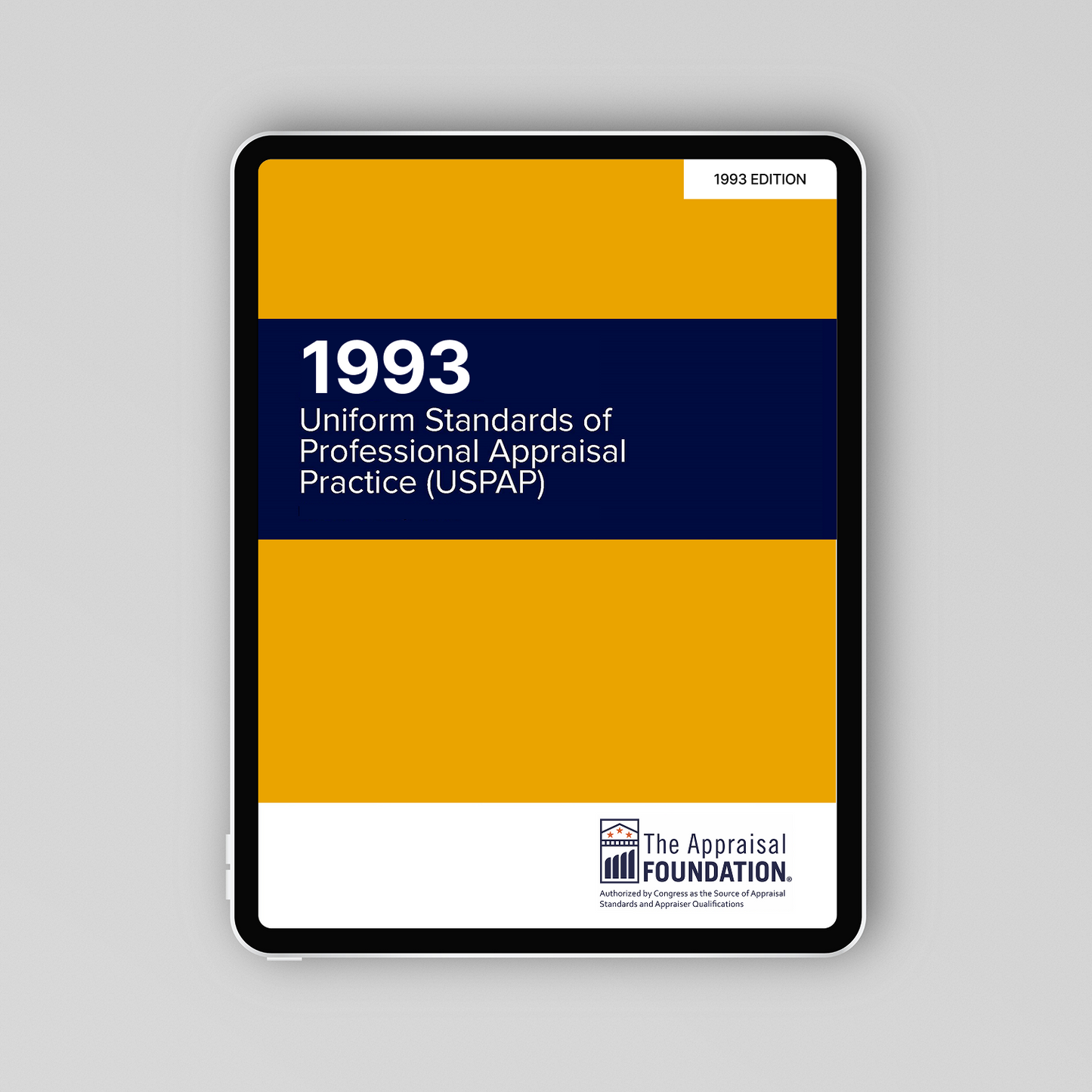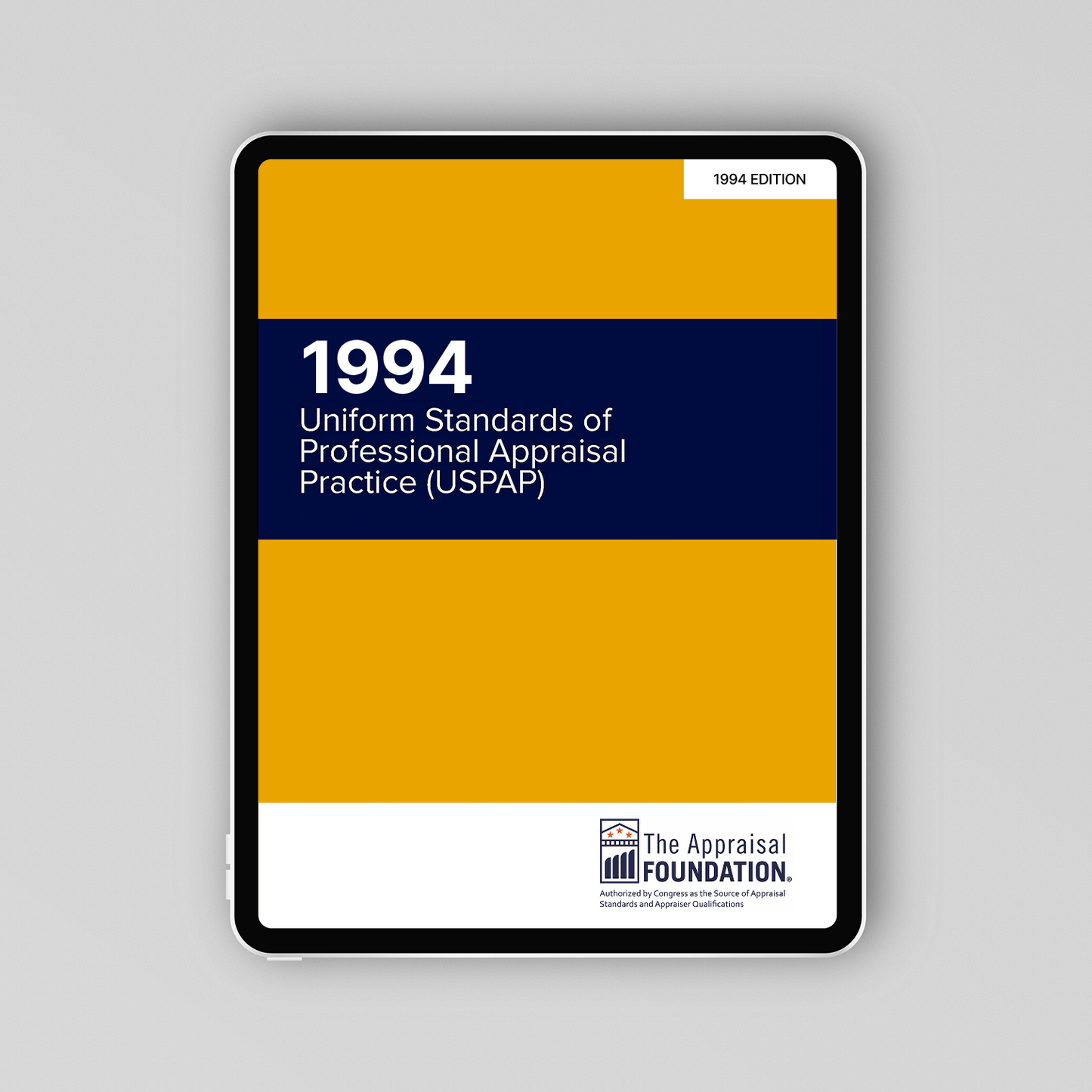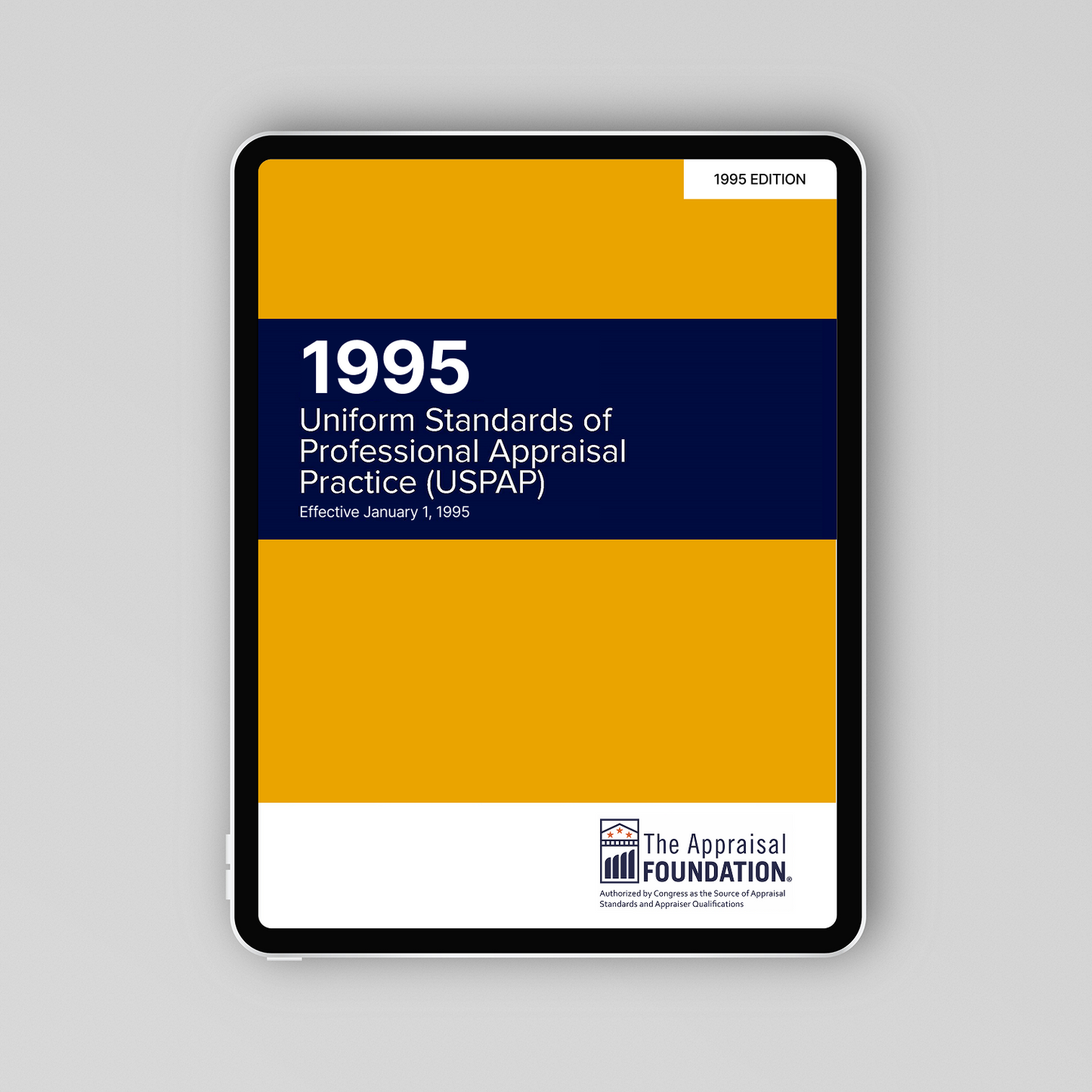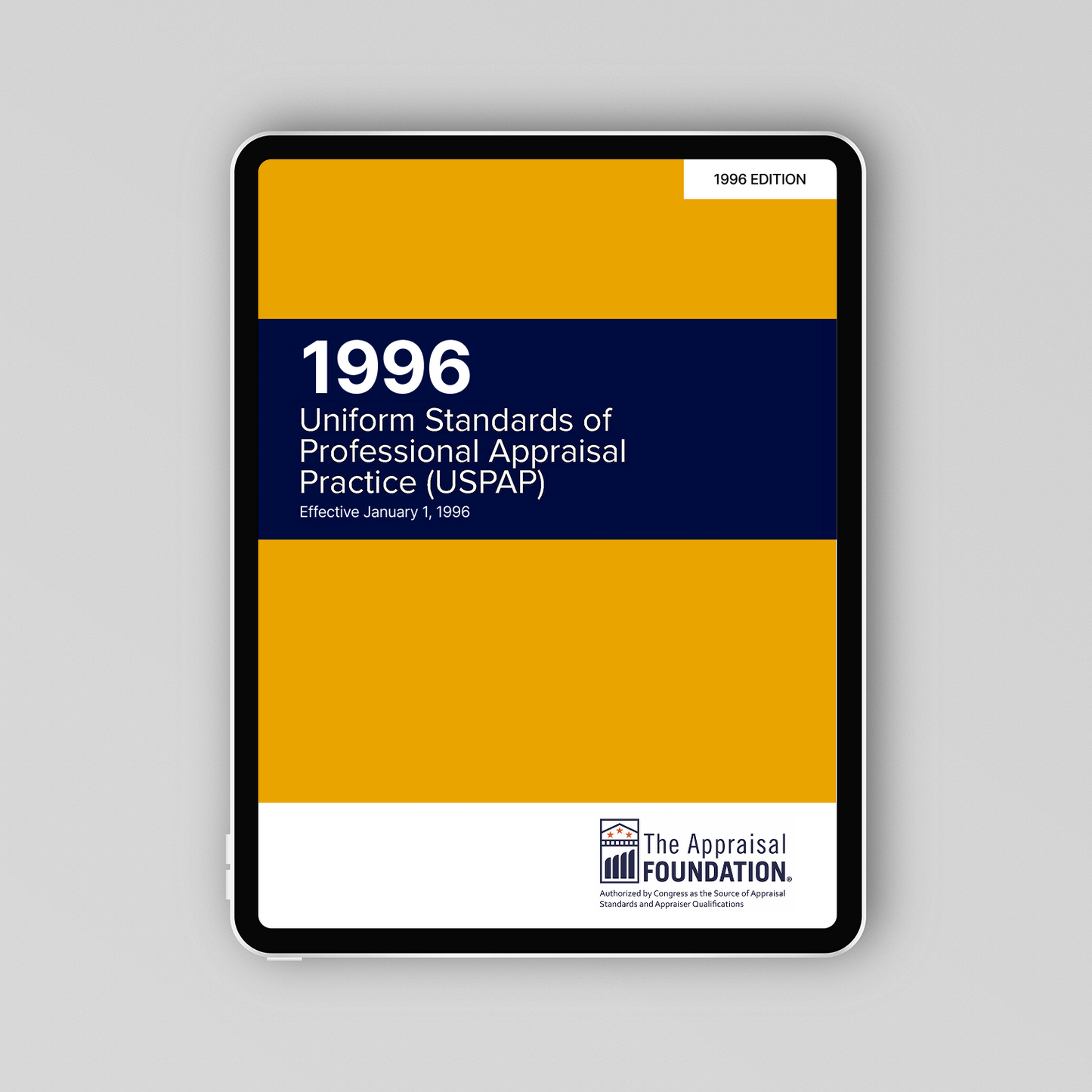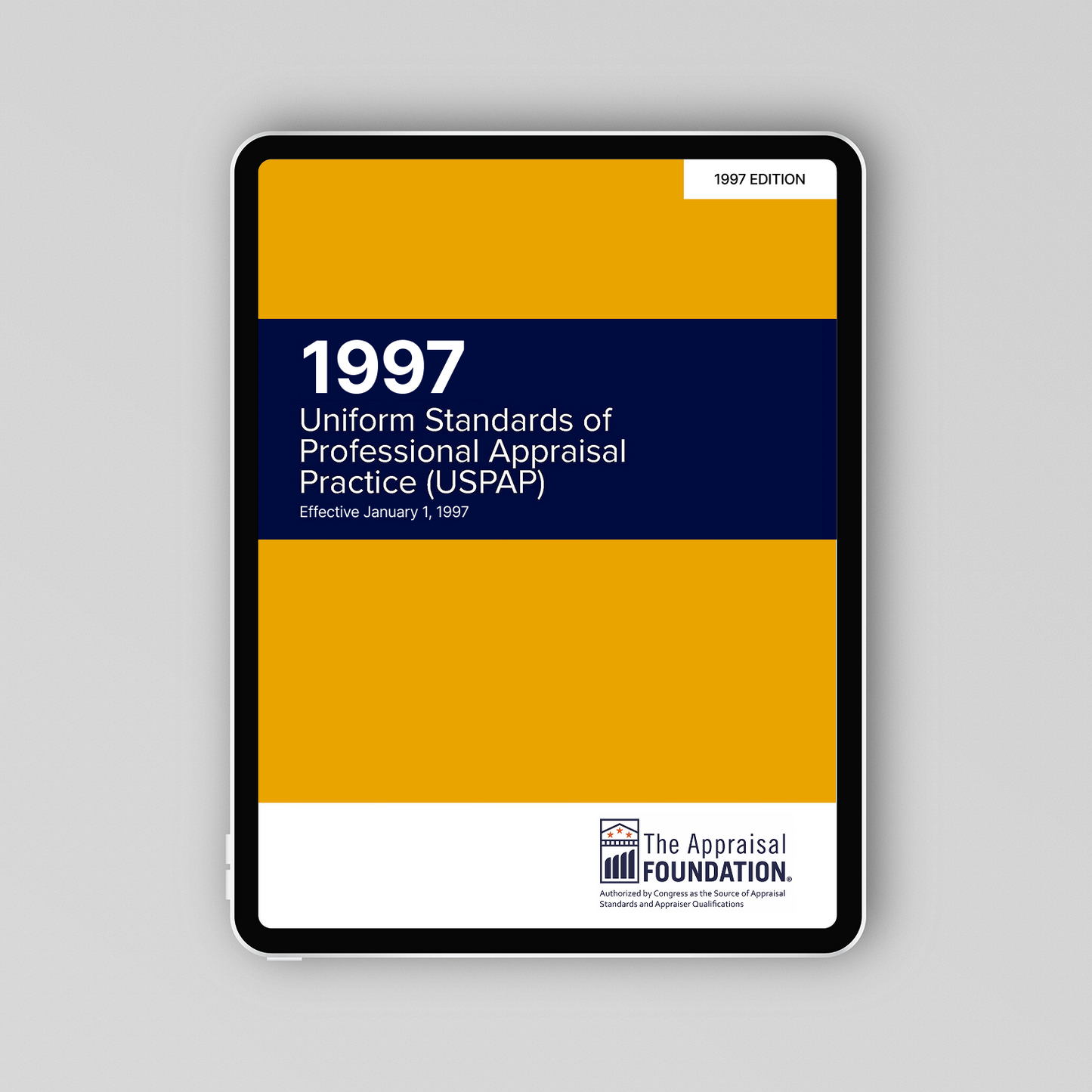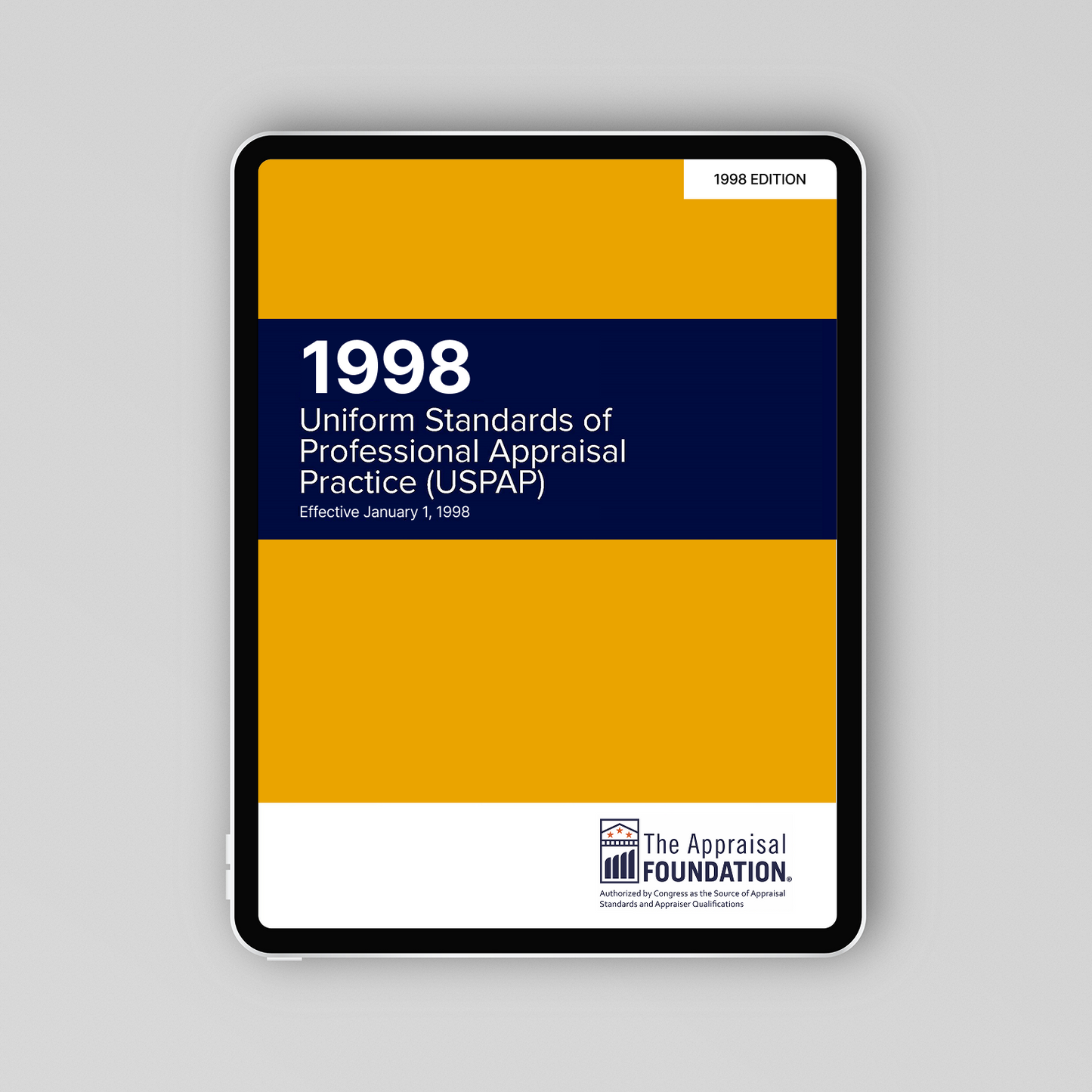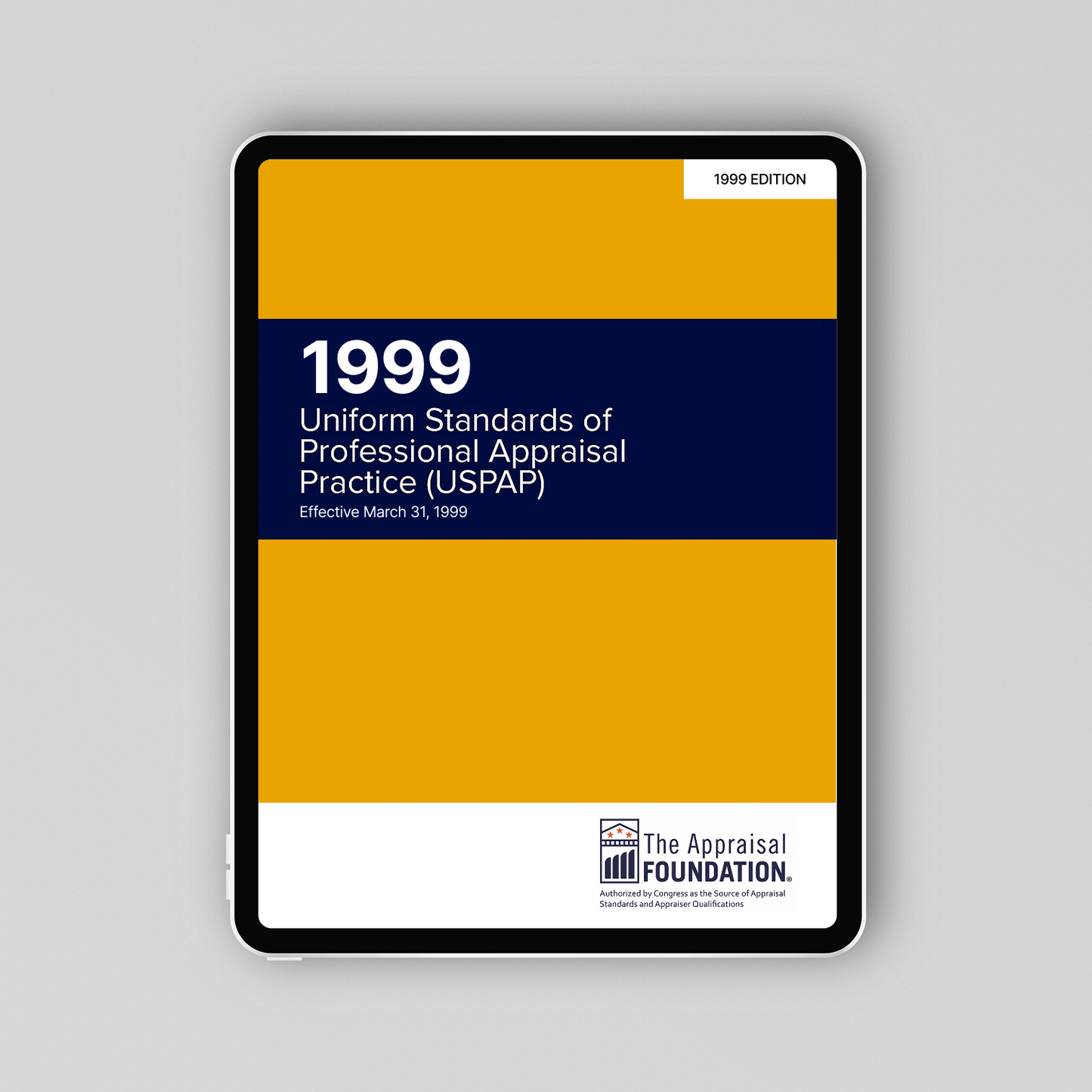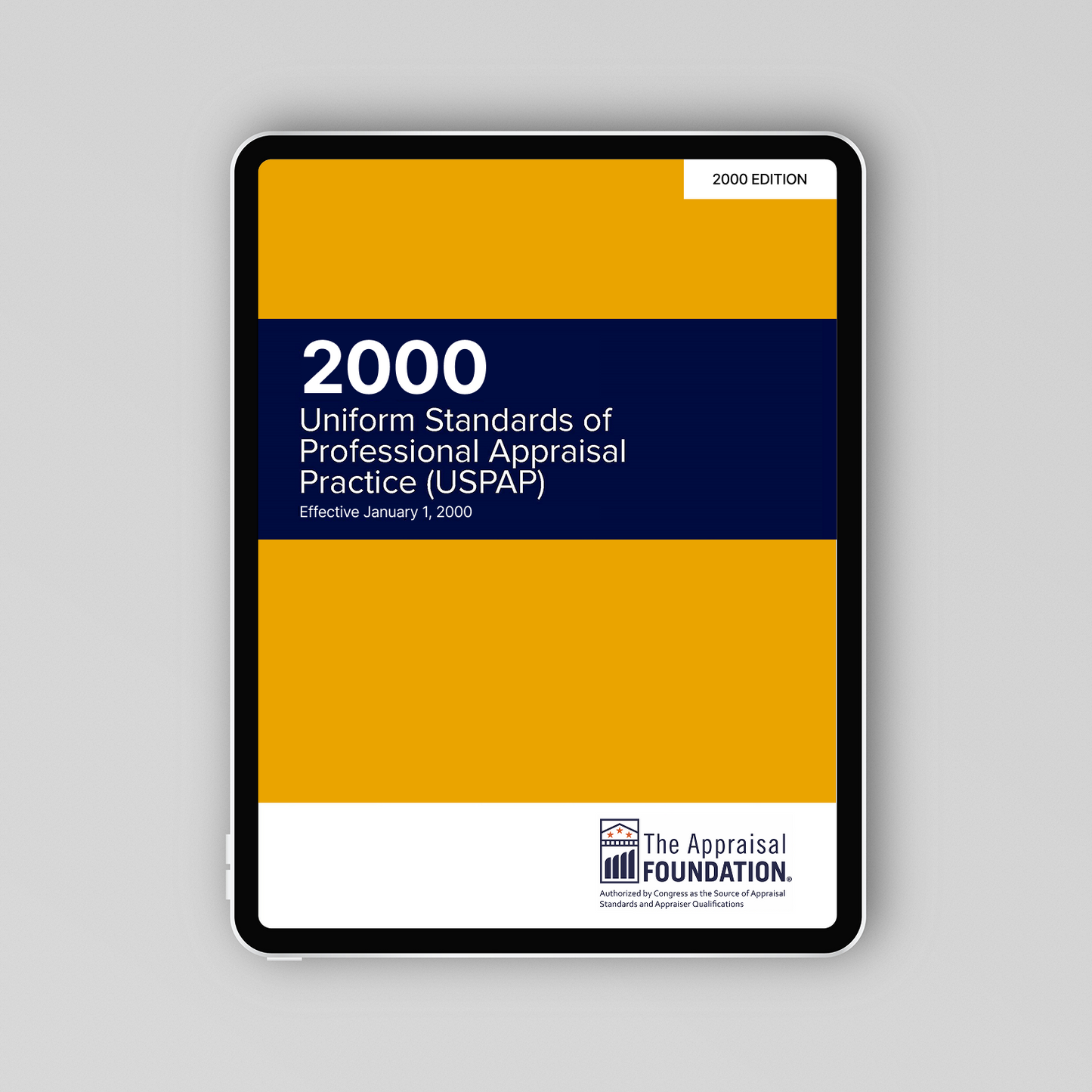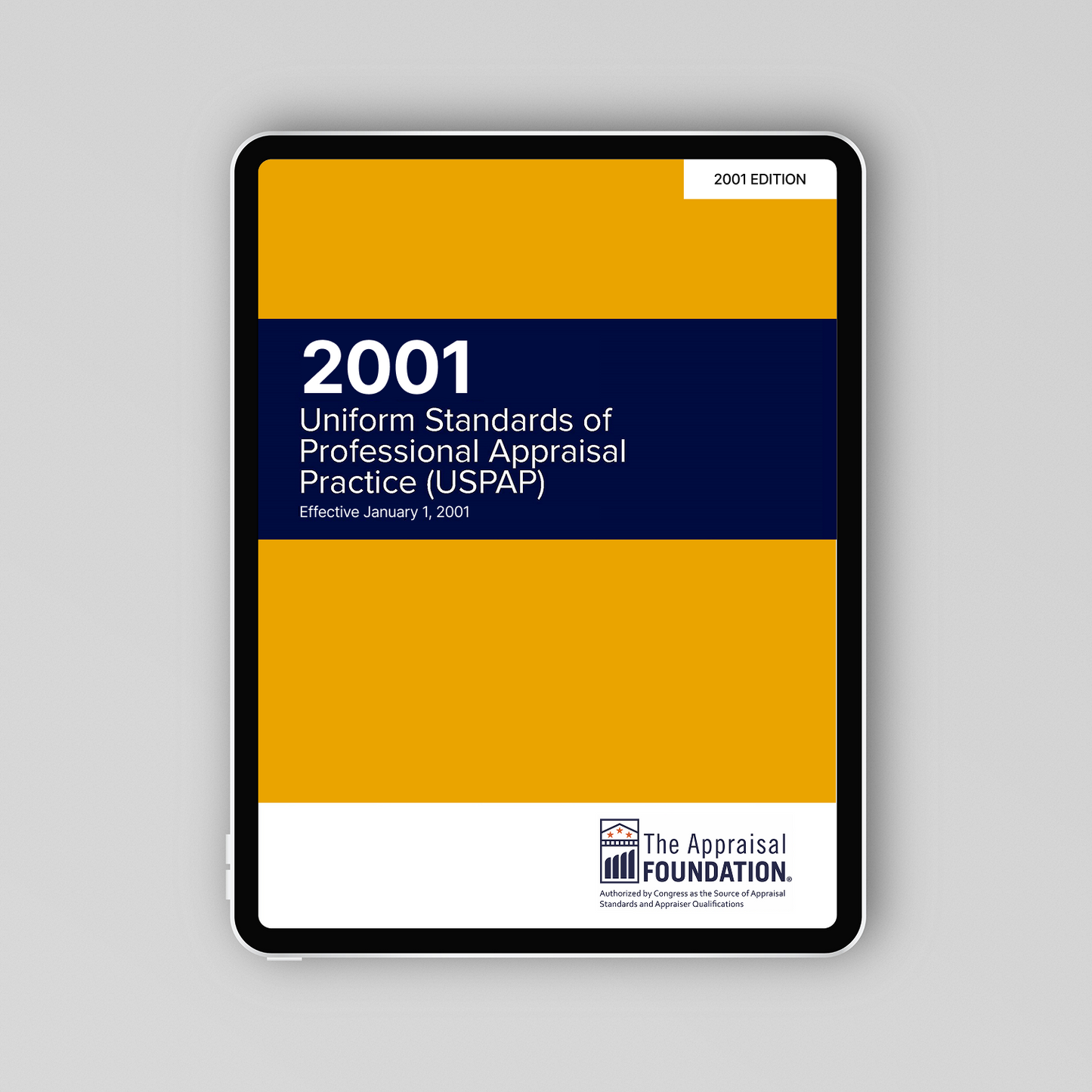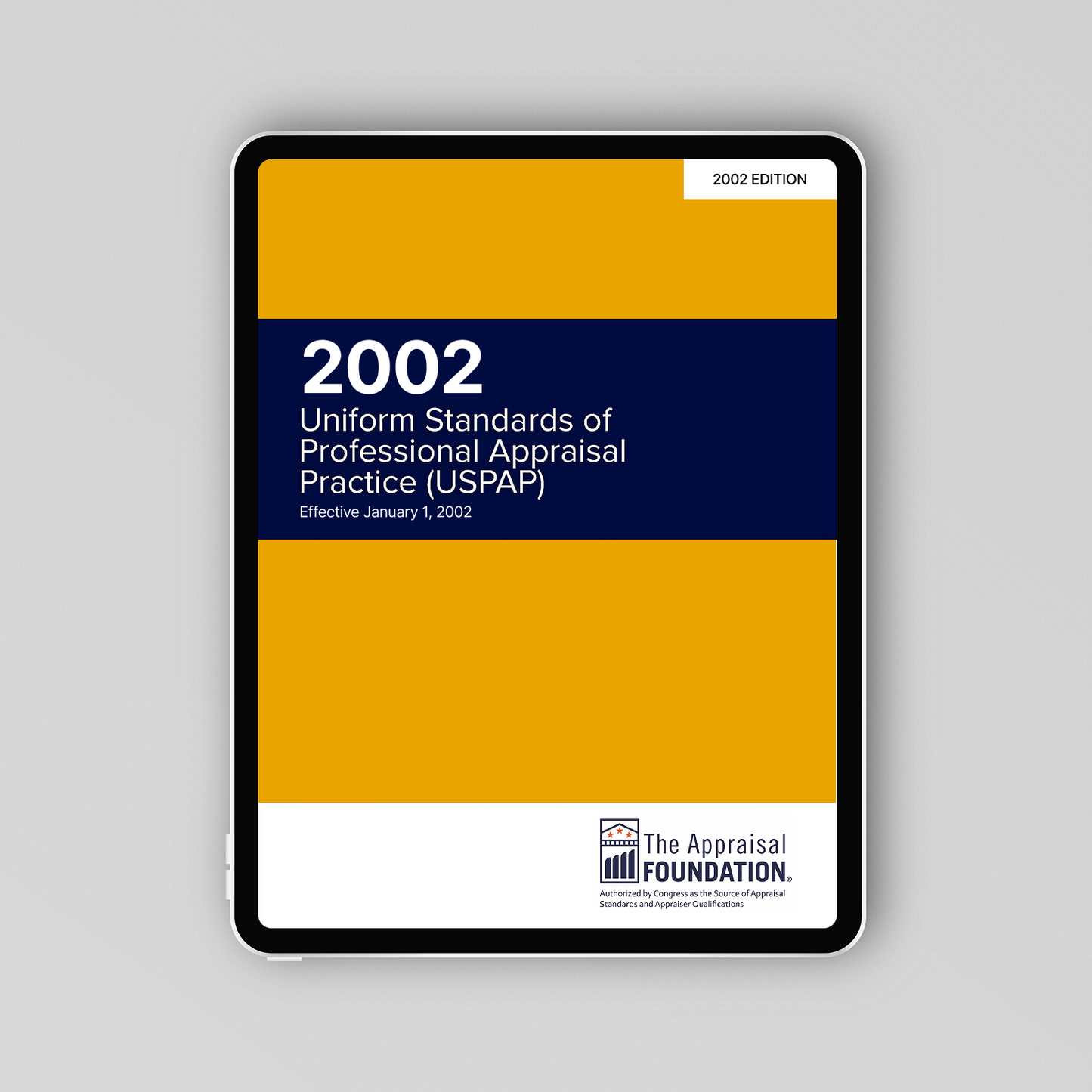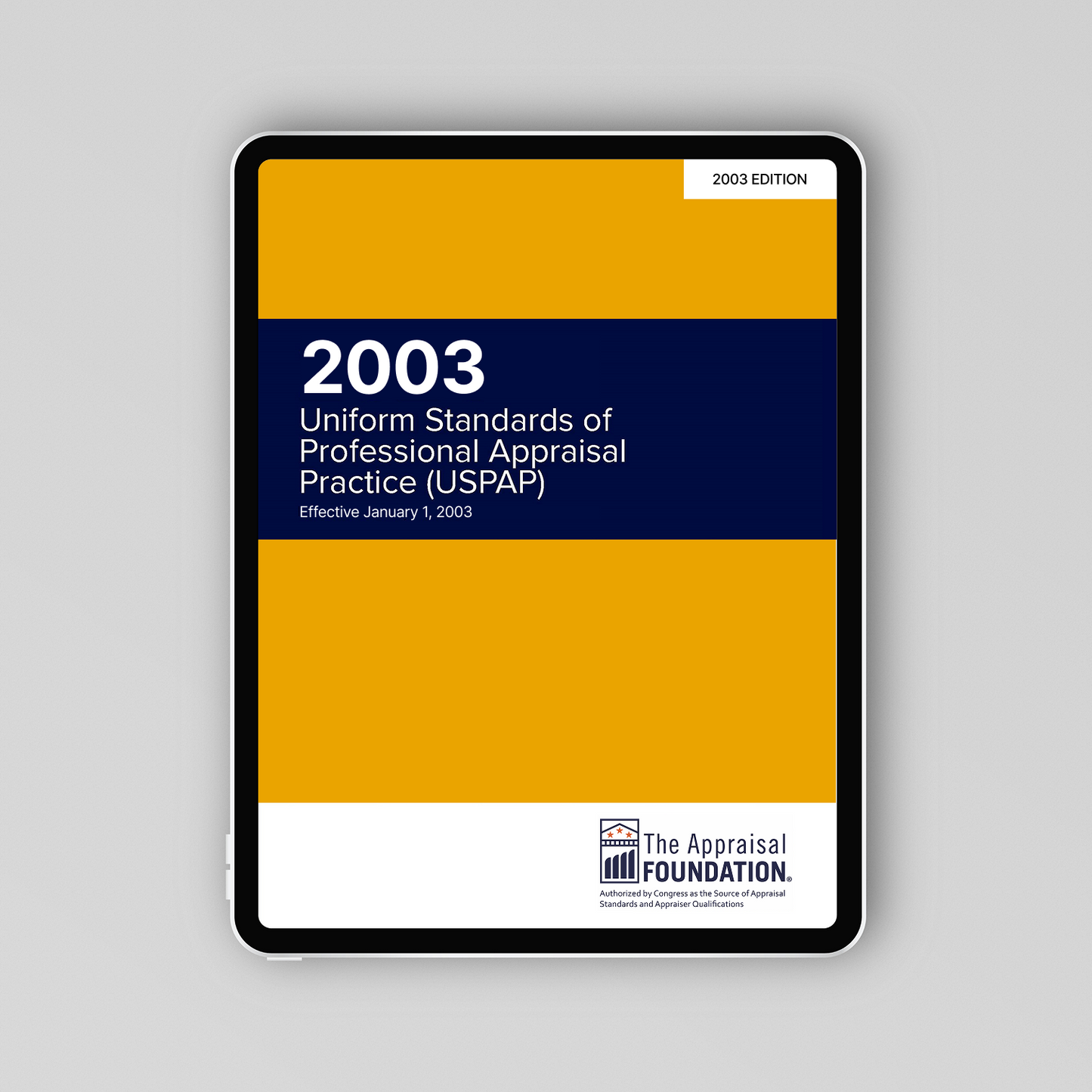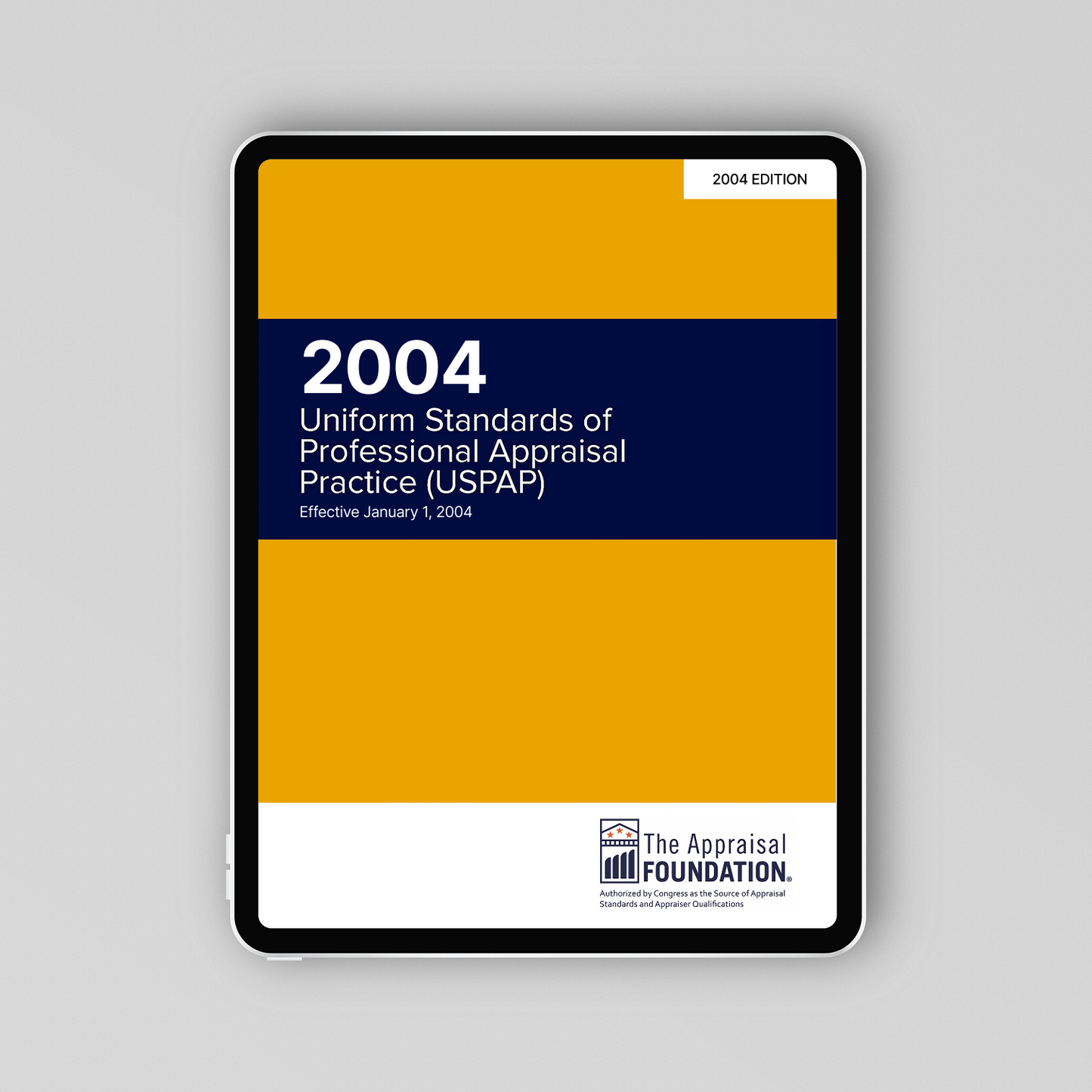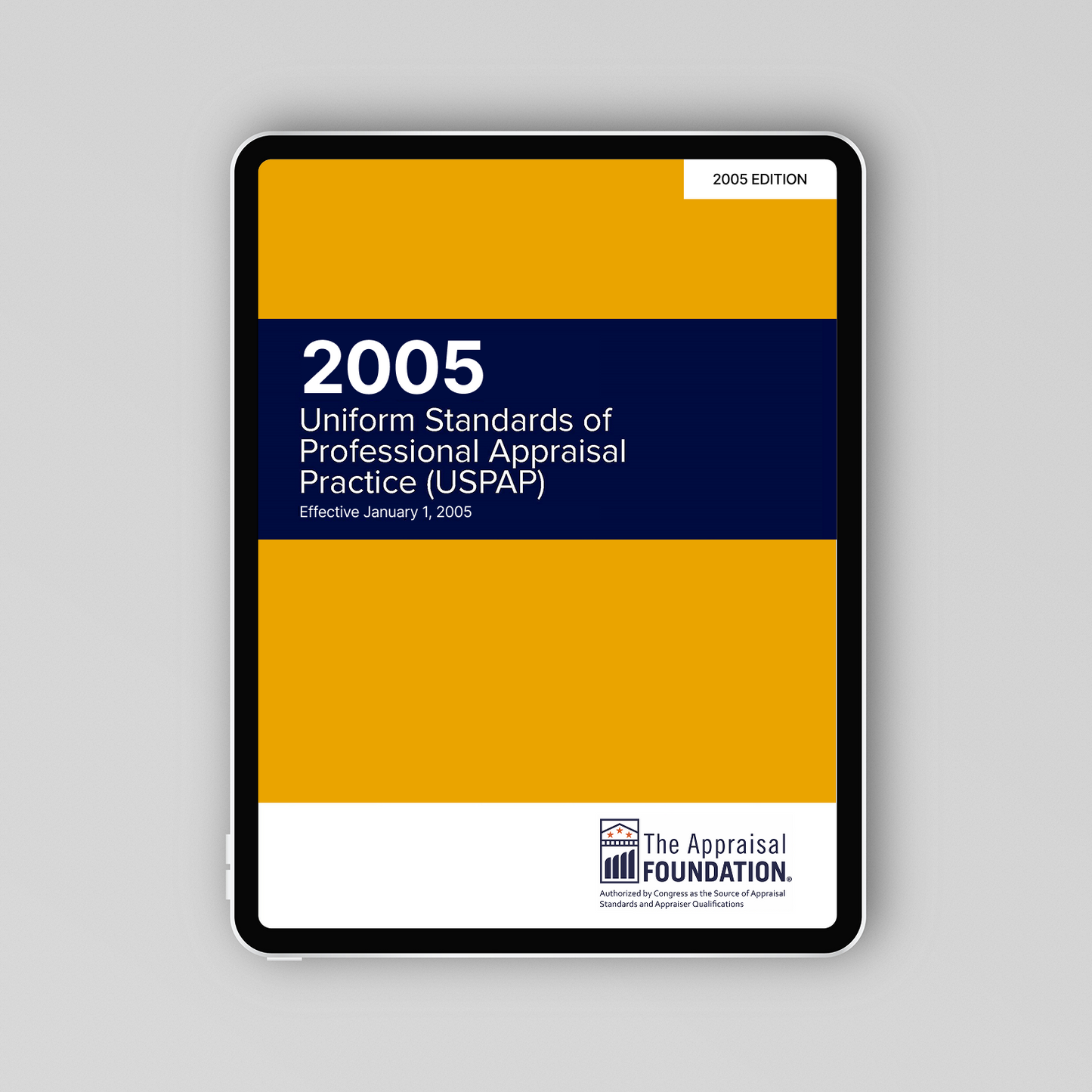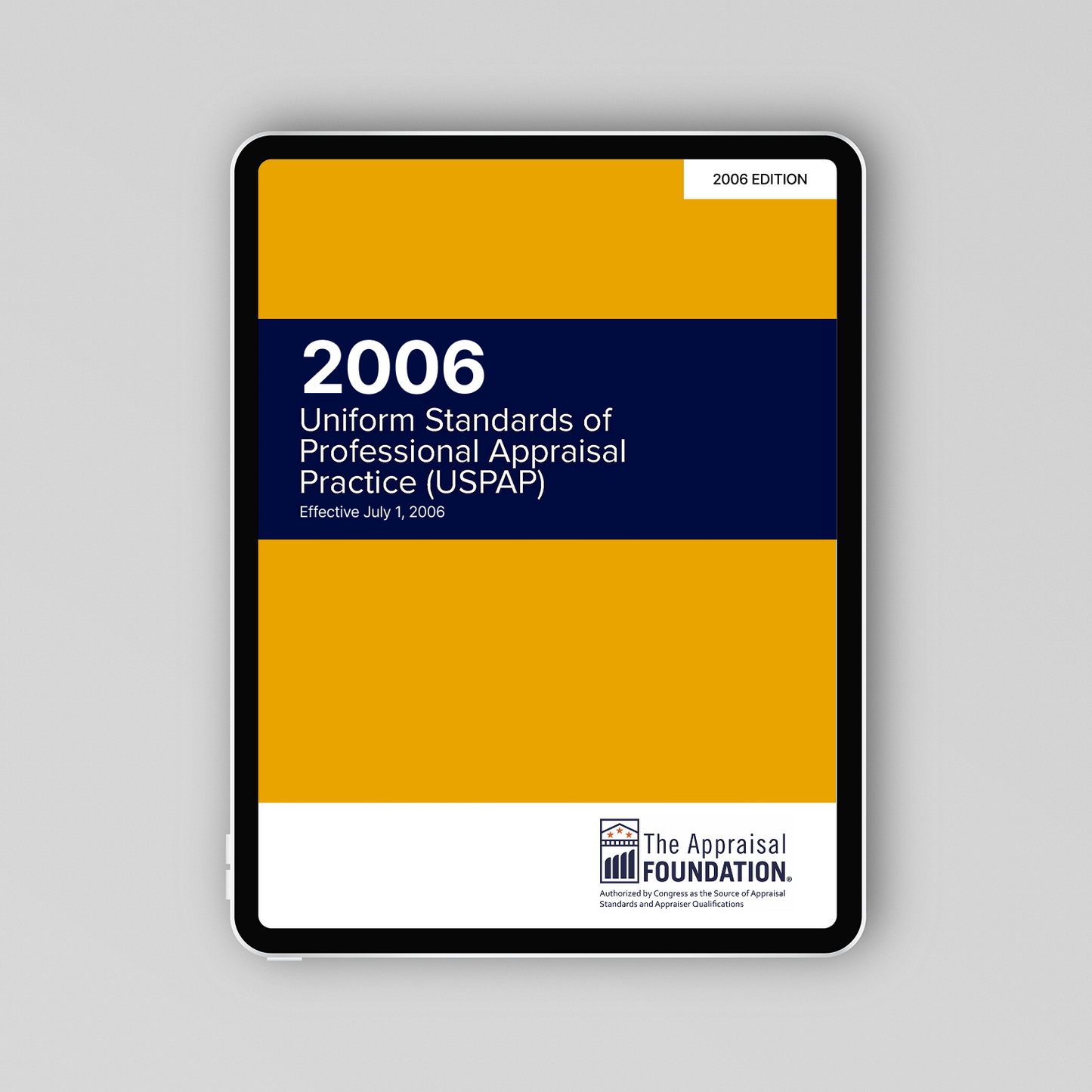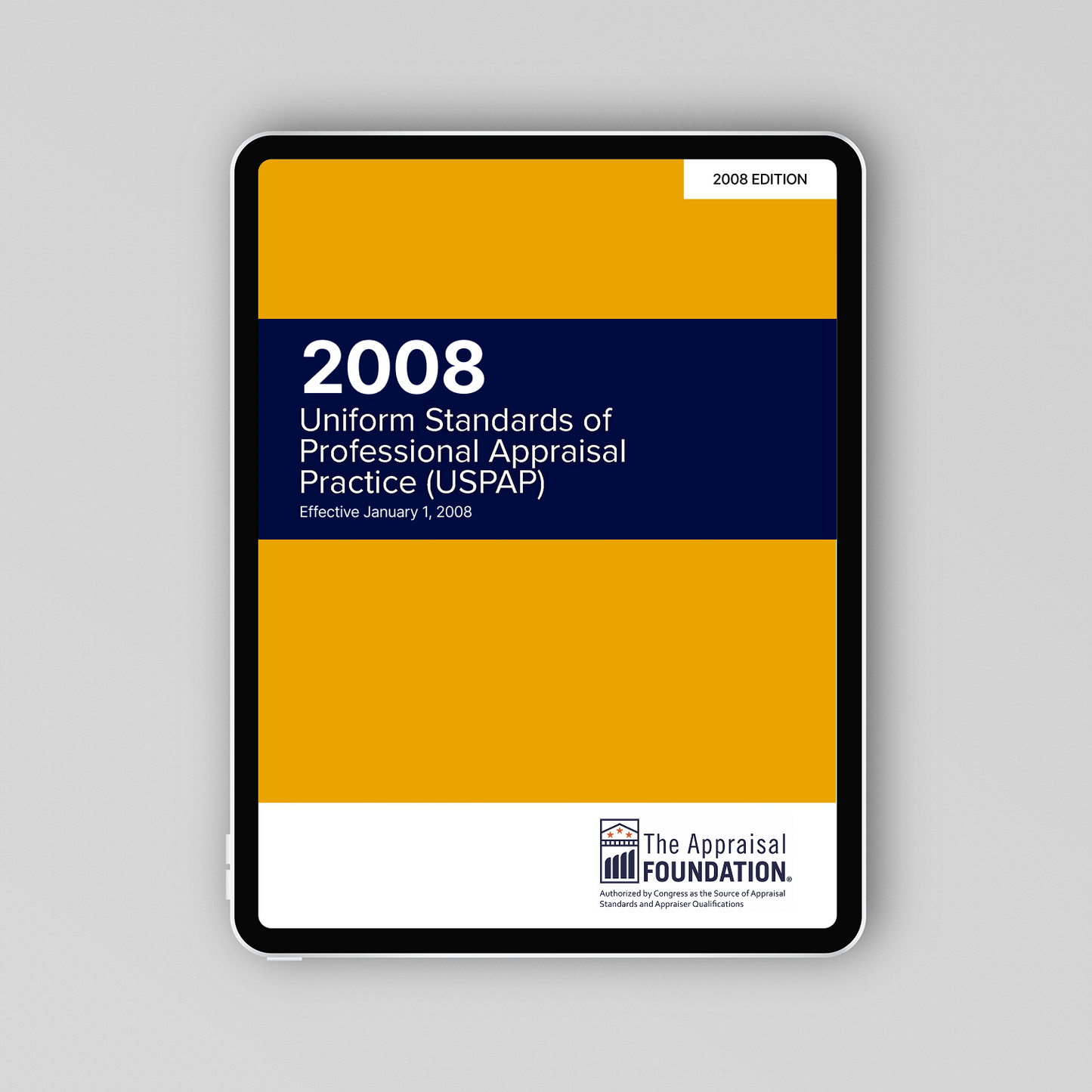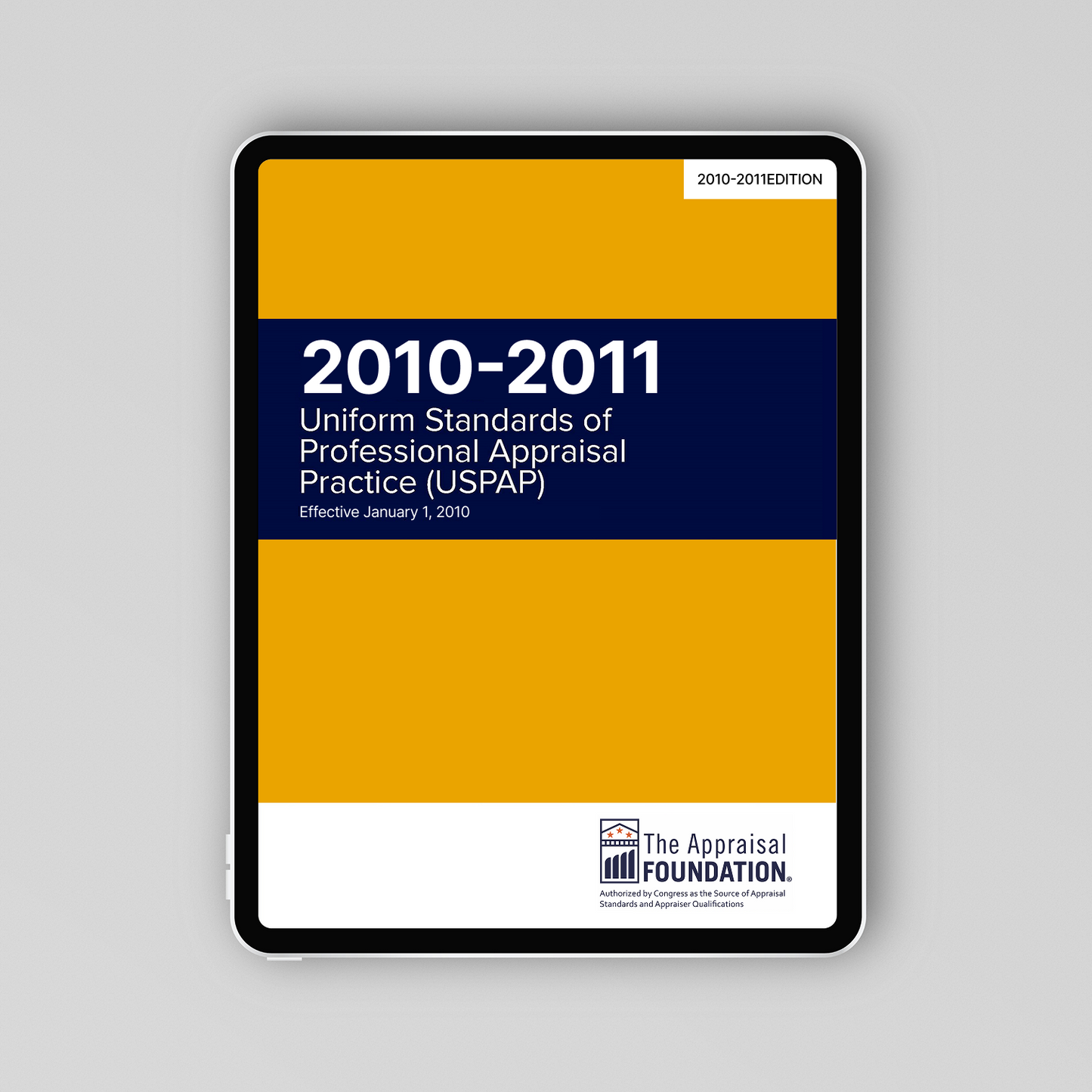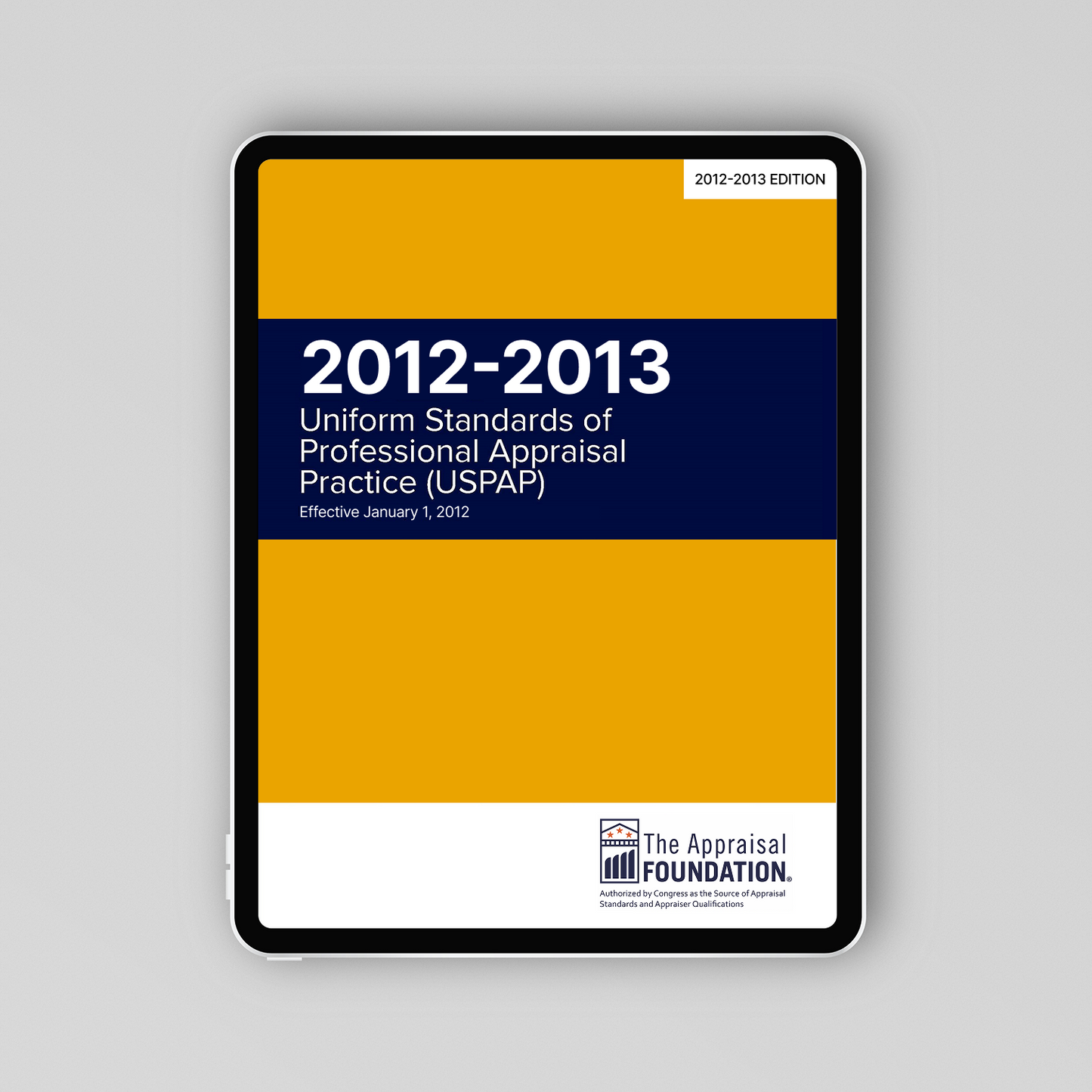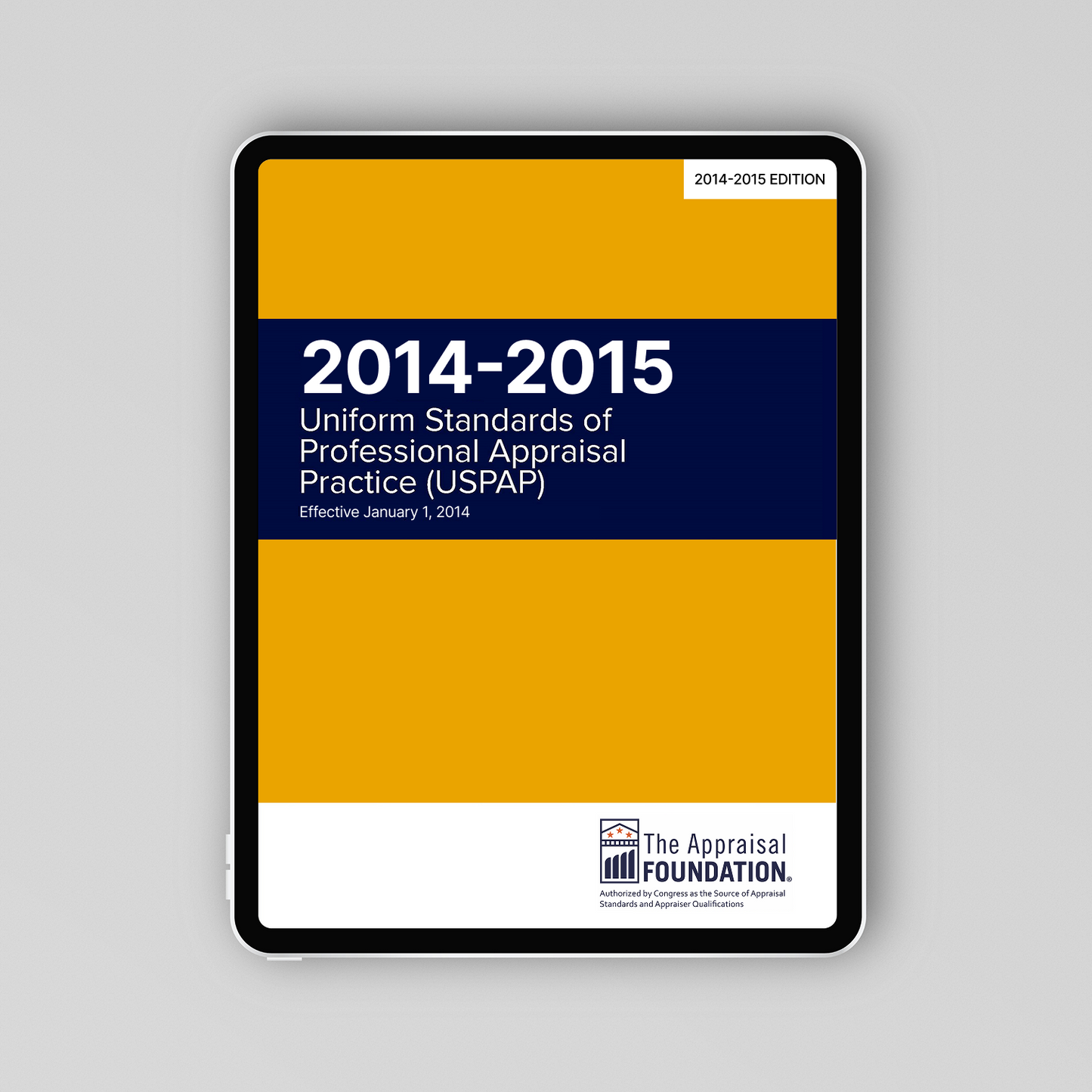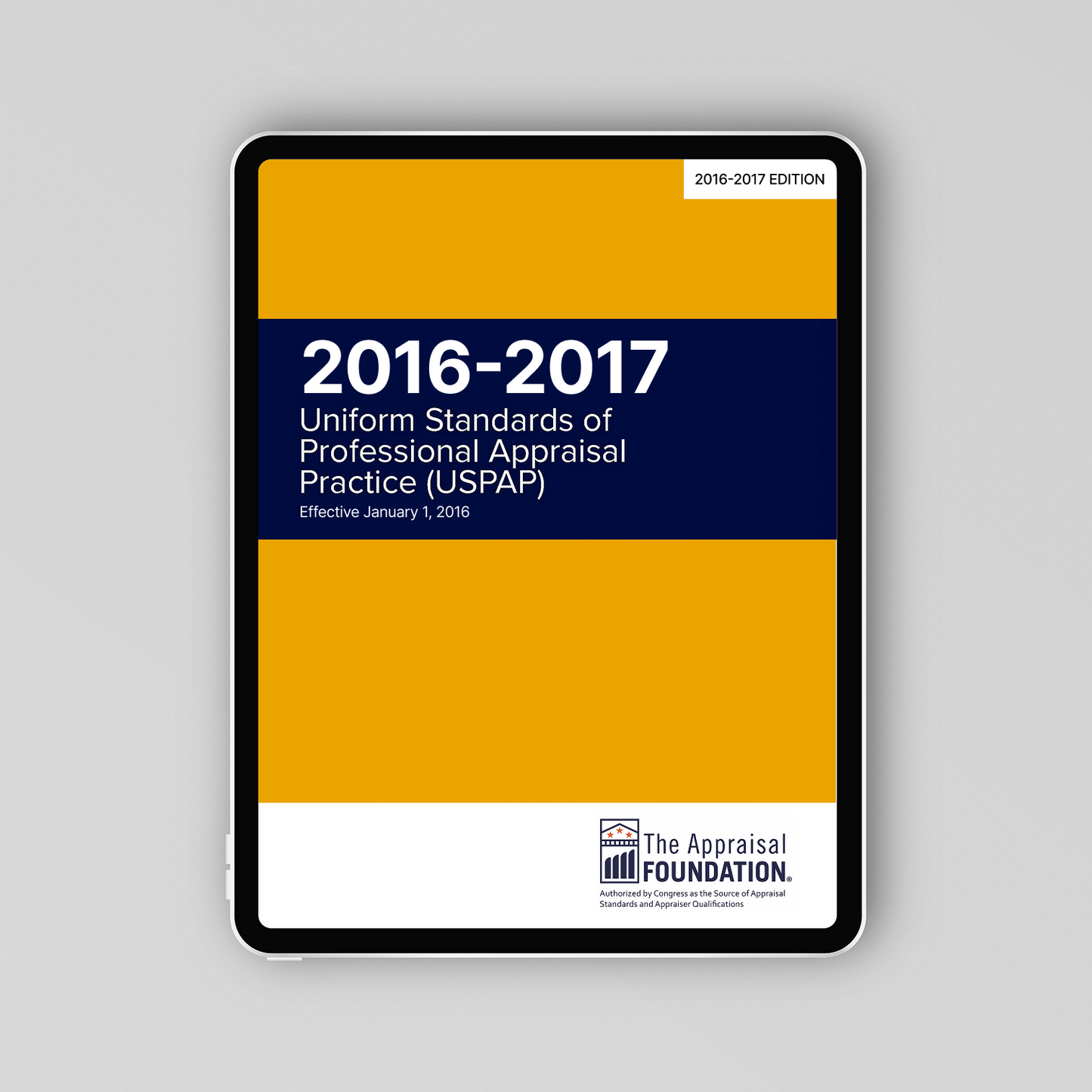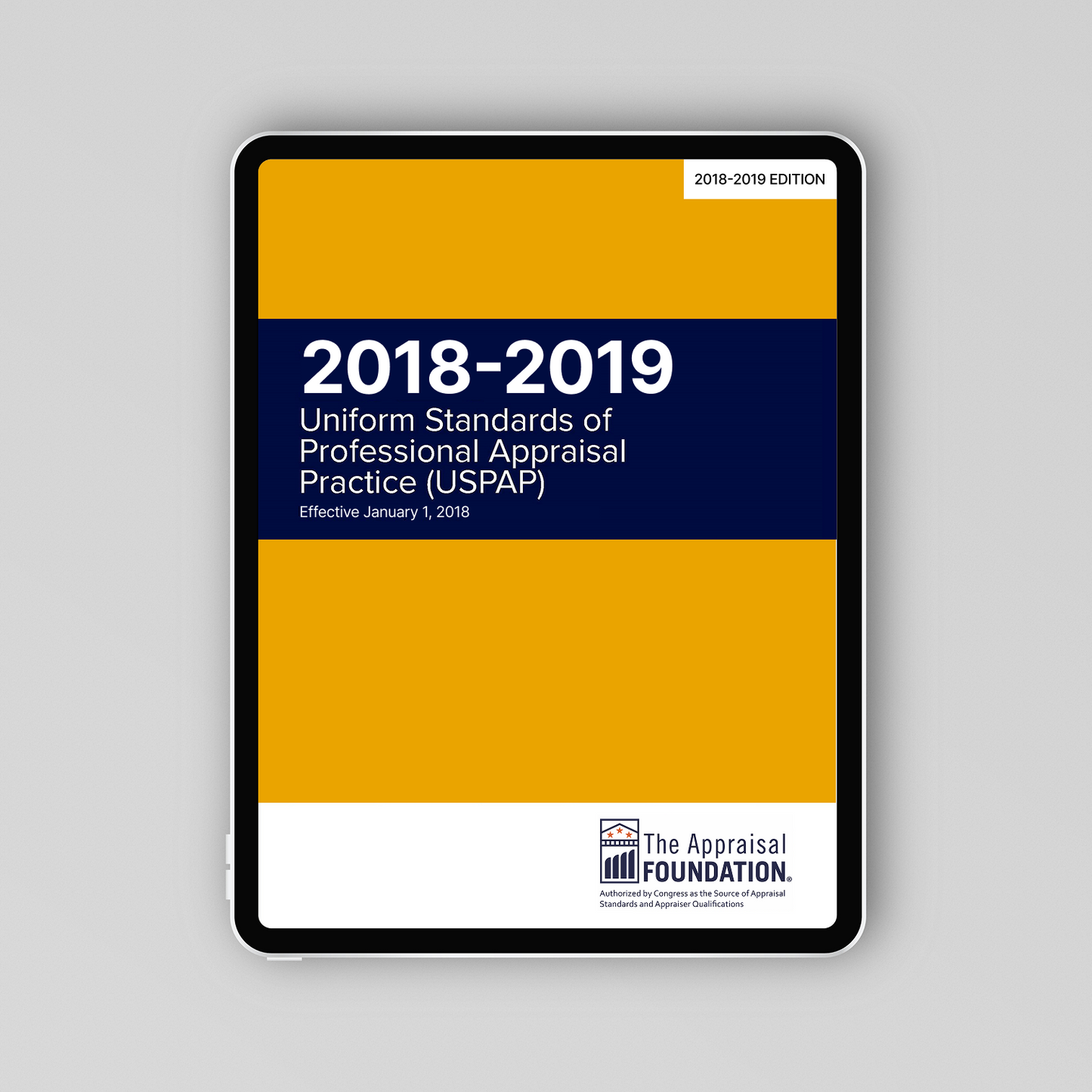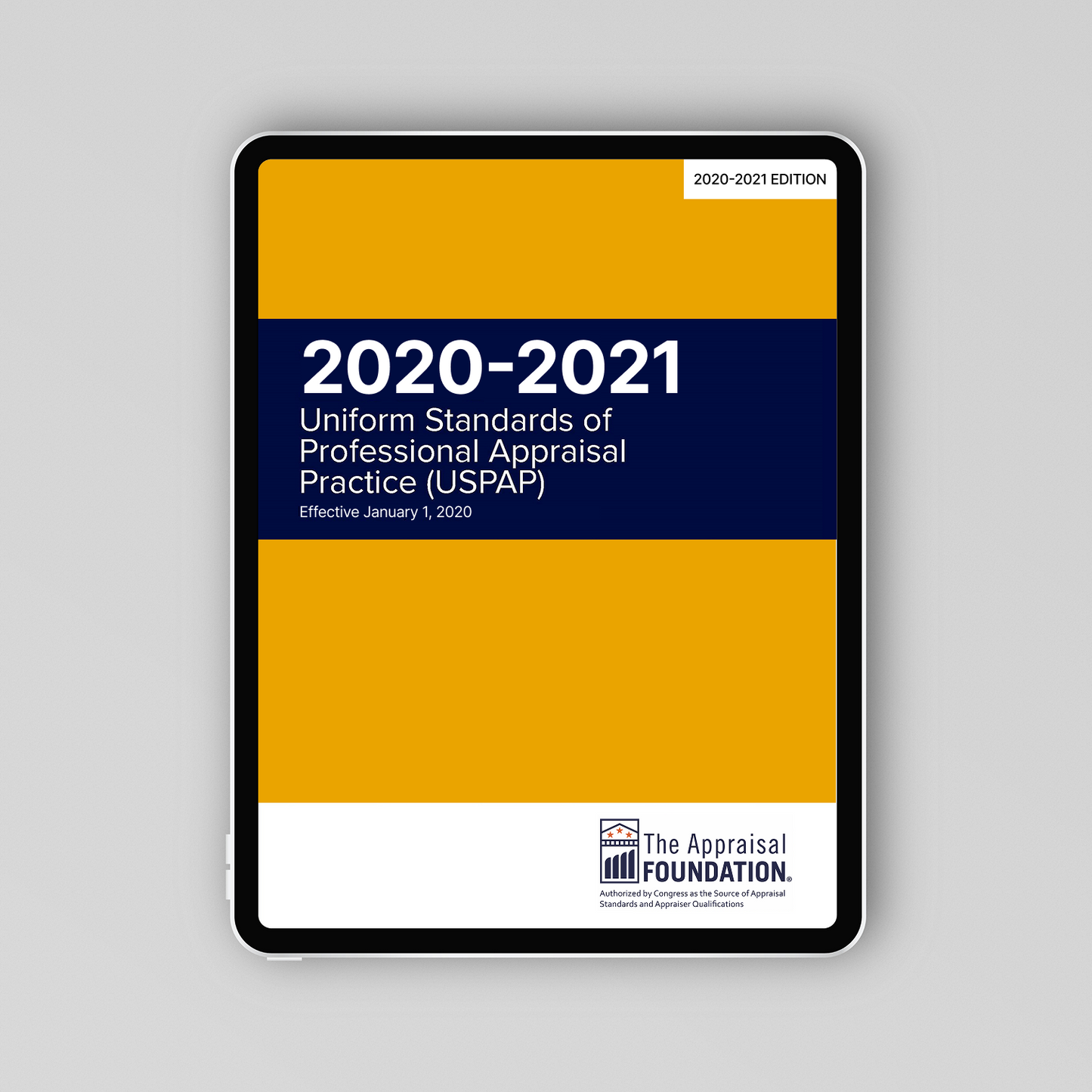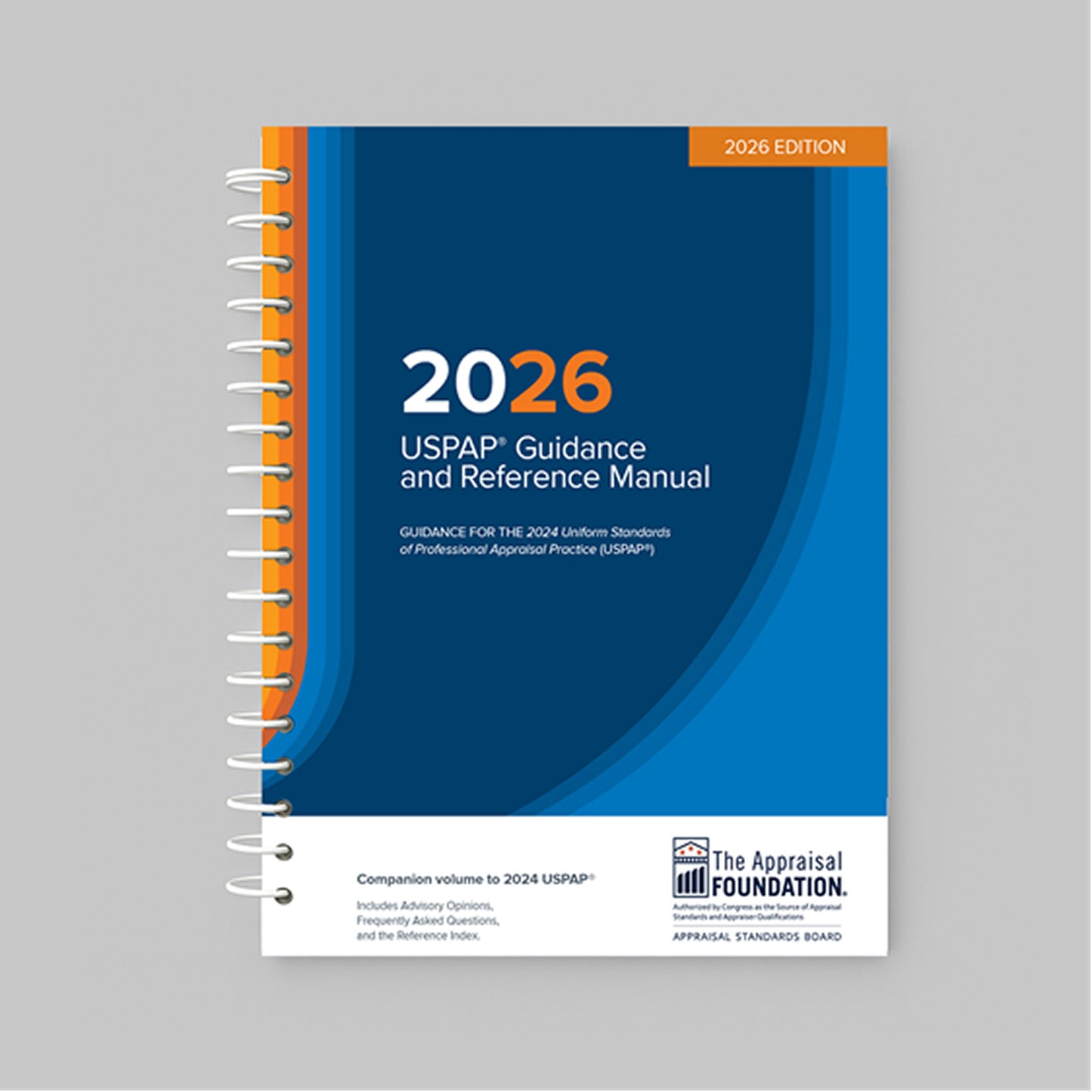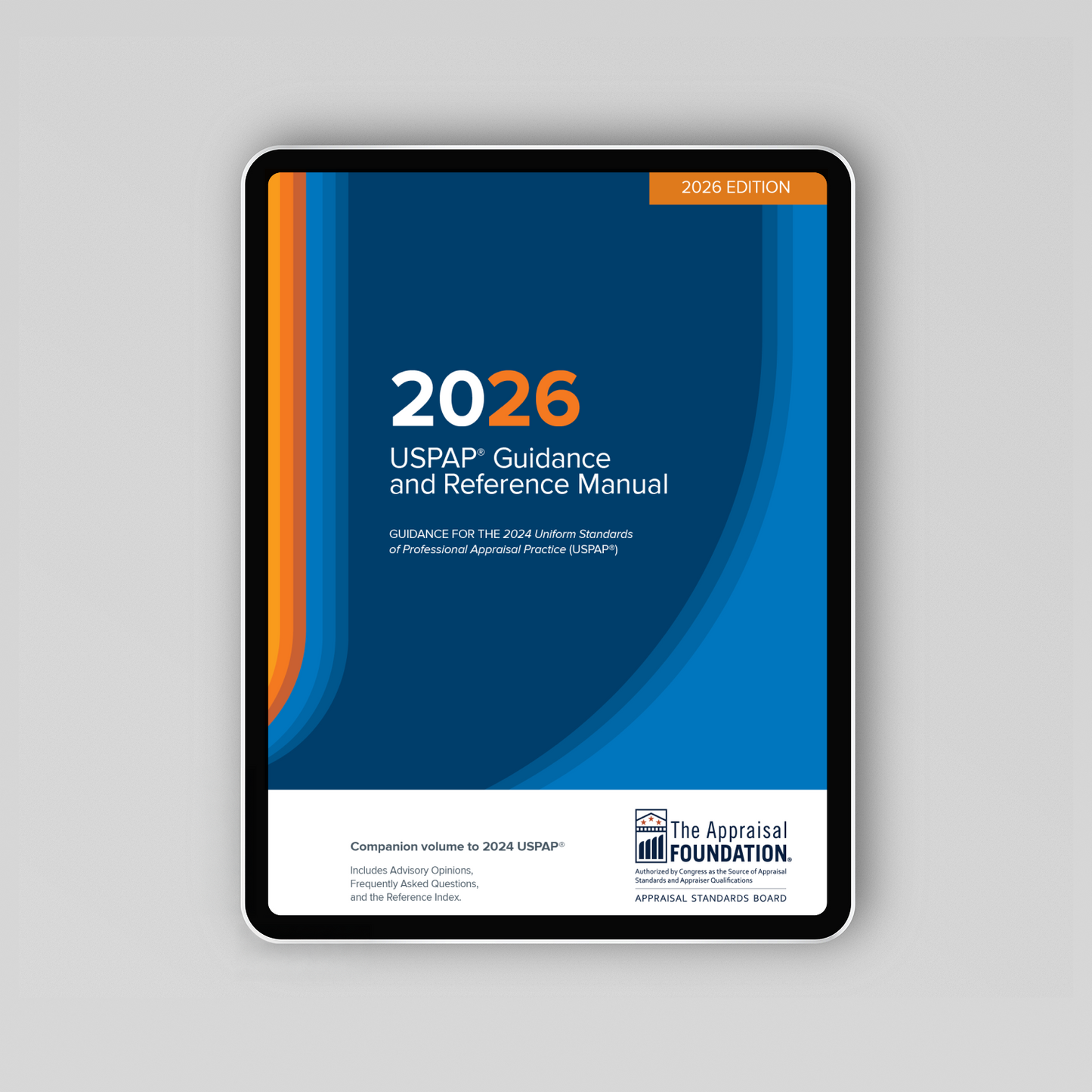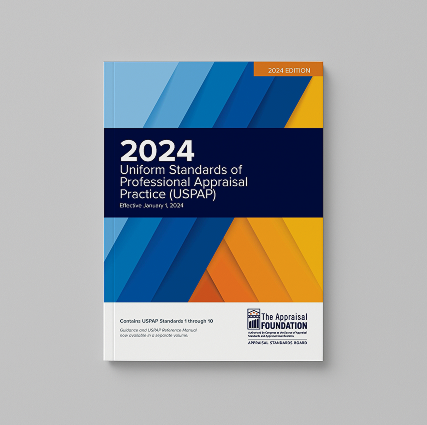The Uniform Standards of Professional Appraisal Practice (USPAP®) provides standards for all appraisal disciplines—including real property, personal property, business valuation, and mass appraisal. However, whether an appraiser is required to comply with USPAP® depends on the laws, regulations, or policies of the state, agency, or client involved.
For example, real property appraisers who are state-licensed or state-certified must comply with USPAP® when performing appraisals for federally related transactions.
Other types of appraisers may be subject to USPAP® through professional membership requirements, client contracts, or state law.
USPAP®
Uniform Standards of Professional Appraisal Practice
Overview
The Uniform Standards of Professional Appraisal Practice (USPAP®) is the generally recognized ethical and performance standards for the appraisal profession in the United States.
In 1987, the Ad Hoc Committee of appraiser membership organizations established The Appraisal Foundation® (Foundation) to implement USPAP® as the generally accepted set of appraisal standards in the United States. These organizations recognized the importance of ensuring that appraisals are based upon established, recognized standards. USPAP® was then authorized by Congress in 1989. It contains standards for appraisal disciplines, including real estate, personal property, business valuation, and mass appraisal. Compliance with USPAP® is required for state-licensed and state-certified appraisers who perform appraisals for federally-related real estate transactions.
The USPAP® standards related to real property development, reporting, and appraisal review, known collectively as Standards 1-4, are referenced by federal financial institution regulatory agencies when implementing Title XI of the Financial Institutions Reform, Recovery, and Enforcement Act (FIRREA). View Standards 1-4 here.
USPAP® Updates
USPAP® is updated on an as needed basis by the Appraisal Standards Board (ASB). Any updates follow the release of exposure drafts of proposed changes and a public vote. The most recent update to USPAP® went into effect on January 1, 2024. The Foundation provides the following resources to inform appraisers and consumers of the most recent changes to USPAP®.
USPAP® Coursework
To become a real property appraiser in the United States, individuals must complete the 15-Hour National USPAP® Course (or its equivalent). Additionally, practicing appraisers must complete the 7-Hour National USPAP® Update Course (or its equivalent) once every two calendar years to maintain their credential. Other disciplines have their own specific USPAP® coursework that may be required by their credentialing organization.
View the Courses page for more information.
USPAP® Frequently Asked Questions
The 15-Hour National USPAP® Course is a comprehensive introduction to Uniform Standards of Professional Appraisal Practice (USPAP®) and is required for anyone seeking a real property appraiser credential. While it only needs to be completed once for licensure, some appraisers choose to retake it later in their careers to refresh their understanding of USPAP®’s structure, rules, and detailed requirements. The course content remains consistent unless USPAP® itself is revised.
The 7-Hour National USPAP® Update Course is for credentialed appraisers and focuses on the practical application of USPAP® in current appraisal practice. It offers deeper exploration of USPAP®-related issues, new interpretations, and real-world scenarios. Unlike the 15-Hour course, the 7-Hour version is updated every two years to reflect recent issues and topics common in every day appraisal practice.
Yes. All Appraiser Qualifications Board (AQB)-approved Practical Applications of Real Estate Appraisal (PAREA®) programs are designed to align with the Uniform Standards of Professional Appraisal Practice (USPAP®) and help participants understand how to apply USPAP® in real-world appraisal scenarios. While participants are not yet credentialed appraisers, the training prepares them to meet ethical and performance standards required for licensure and future appraisal work.
Yes, the Appraiser Qualifications Board (AQB) and the Appraisal Standards Board (ASB), consist of subject matter experts in the standards and qualifications, including many practicing appraisers. In addition, feedback is sought from a wide range of stakeholders on proposed changes from regulators, consumers, and lenders.
The Appraisal Standards Board (ASB) and Appraiser Qualifications Board (AQB) operate independently of the Board of Trustees (BOT). The BOT cannot dictate either board’s work plan or their decisions regarding any topic in front of the board.
An Oversight Subcommittee ensures all board members uphold the Foundation’s Code of Conduct and ethical requirements, but this role is strictly managerial. View this on the Leadership and Governance page.
The Uniform Standards of Professional Appraisal Practice (USPAP®) does not dictate the form, format, or style of appraisal reports. It is the position of the Appraisal Standards Board (ASB) that it is the appraiser, not a form, that complies with USPAP®. Each assignment is different, and no form can cover all USPAP® requirements.
Appraisal report forms are simply tools used to organize the reporting of assignment results, and it is common for appraisers to supplement a form with addenda to comply with USPAP® requirements.
